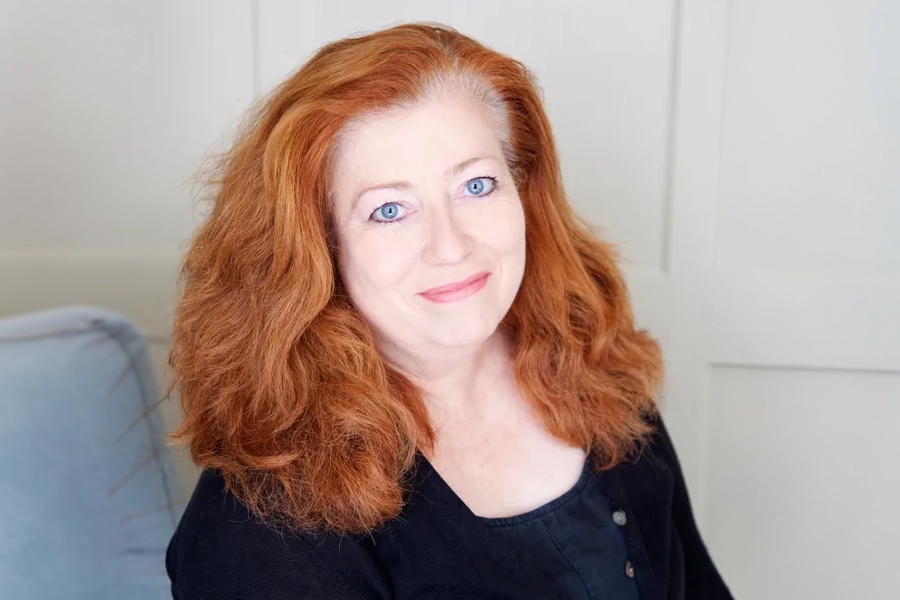Faculty Spotlight: Diane Roberts

Diane Roberts is a professor and University Alumni Distinguished Writer in the Department of English, part of Florida State University’s College of Arts and Sciences. She specializes in creative non-fiction, Southern culture, gender studies, and 19th- and 20th-century culture. Born in Tallahassee, she received both her bachelor’s and master’s degrees in English language and literature from FSU in 1978 and 1980, respectively, before earning another bachelor’s in English literature and a doctorate in American literature from Oxford University in the U.K., in 1989. Roberts stands as the only FSU graduate to earn a Marshall Scholarship, which funded her studies abroad at Oxford. She returned to FSU as a professor in 2006. In addition to her academic roles, Roberts is also a columnist for The Guardian and the Florida Phoenix, and is a contributor for National Public Radio.
What inspired you to become both a journalist and researcher?
I became a journalist because Jerome Stern, my favorite professor and a founder of the FSU Creative Writing Program, told me I was a pretty good scholar but my prose was a bit academic. He said, “you could learn to write for humans,” and sent me to the Florida Flambeau. That was pivotal. Research helps uncover things you did not know; journalism tells stories you need to know now. They are linked. I love digging into the lost worlds of the past and applying what I find to the present day.
Can you break down your areas of research for us?
In the scholarly realm, I concentrate on Southern culture and literature: my first two books were about the Civil War, slavery, and William Faulkner, a prominent American author who set his work in a fictionalized Mississippi. Then, I turned to the history of my own family for my book, “Dream State: Eight Generations of Swamp Lawyers, Conquistadors, Confederate Daughters, Banana Republicans, and Other Florida Wildlife.” My family has been in Florida for more than 200 years and has contributed to making the place both fascinating and an epic mess. I then turned to the otherworldly culture of American college football for my most recent book, “Tribal: College Football and the Secret Heart of America.”
What makes you passionate about your topics of research?
Through my work, I try to explain my culture to myself and others; I want to tell stories that illuminate the world, how we got here, and what forces in history and society have led to the myriad of current crises — from the dangers to our planet to the dangers to our democracy.
Tell us about your experience writing for media organizations such as NPR and The Guardian.
I got my start in radio at WFSU, doing little commentaries on Florida culture. Eventually, NPR took me on. I loved it, even though writing short pieces is difficult. I’m a Southerner: I love digressions, subordinate clauses — did I tell you about the time my grandmother had to kill an alligator with a spoon? — sentences that go on and on and on. In radio, you must pack a lot of information into a small timeframe and make it graceful, too. Writing for newspapers, you get to go on a little longer, though you still have to figure out how to recount a complex story in 1,200 words or less. Publishing in newspapers and magazines such as The Guardian, The Washington Post, and The Atlantic is instant gratification; you write it, somebody reads it and then people react. Since I write a lot about politics, some reactions can be quite negative. Lucky for me, I love hate mail.
What is your favorite part of your job?
My favorite part of teaching at FSU is the students. I know most professors say that, but it’s true. I learn a lot from my students.
What is your best memory so far from working at FSU?
I don’t think I can pick just one. I love when students encounter books that change their lives. I’ve seen people transform and expand their ways of thinking after reading texts like “Moby-Dick” by Herman Melville, “Beloved” by Toni Morrison, and “The Sound and the Fury” by William Faulkner.
Who are your role models? Are there certain people who have influenced you most in your life and career?
Stern was a great mentor and my most important professor at FSU. Because of him, I came to understand that people are products of their history and culture. If you don’t know about slavery and Jim Crow, you won’t understand how racism still shapes our world. At Oxford, other students educated me as much as my tutors, as they were more worldly than I. Through peers, I began to pay attention to what was going on outside the wisteria-covered walls of my university — South African apartheid, the struggle of women to be treated as full human beings, the excesses of colonialism, and the good, bad and ugly of capitalism, to name a few. In journalism, the great Lucy Morgan, Pulitzer Prize-winning reporter for the Tampa Bay Times, taught me to care far less about what people think of me.
If your students only learned one thing from you (of course, hopefully they learn much more than that), what would you hope it to be?
Think critically, question authority, and do not be deferential. This may sound like three separate things, but it’s all a part of one meaningful piece. Just because a powerful person says something doesn’t make it true. Investigate what you hear or read using reputable sources — ones which check their facts, present evidence and show their work — not some social media post. As the old rule in journalism goes, if your mother says she loves you, check it out.
